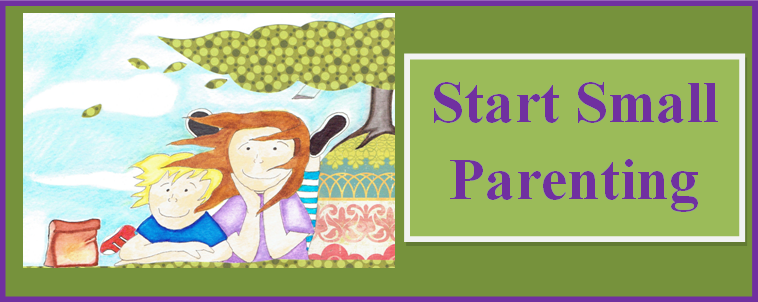
Editor’s Note: This is a guest post from Bruce Williams. For all of the benefits of social media, it’s important to be well educated about its pitfalls, especially as parents.
~~~~
There’s no question that in the past few years, the advent of social media and especially Facebook has affected the lives of many. How so and how much? Who knows? Certainly not me. But I’m learning (I hope) as I go that my ignorance is important, because it tells me I need to be responsible when I post or repost information regarding others, especially children.
Three years ago, when I signed on to Facebook, that thought never crossed my mind – I found myself reuniting with long-lost friends and childhood sweethearts, as well as new and interesting people. What a blast! I saw it as a wonderful novelty: a party line, a bulletin board, a virtual water cooler… all that and more.
It took a while for me to see that it’s also a power tool – and as with any power tool, careless use can hurt people. Although you can’t put someone’s eye out with it, you can hurt someone without even knowing it. So, extra care is required before firing off posts. Does that sound alarmist? Unfortunately, it’s not. People have been hurt; many by the good intentions of others. The most obvious example:
Reposting ‘Kids With Cancer’ Hoaxes: Who on Earth would stoop so low as to exploit a child with cancer? No one, right? Wrong. But that possibility gets overlooked, and <click!> the exploitation spreads. These posts are pretty formulaic; the most common ones showing a hijacked photo of an obviously afflicted ‘poster child’ in a hospital bed, with the caption: “Facebook/Bill Gates/whoever will donate $1.00 for every ‘Share’…” or “If this post gets 10,000 ‘Shares’ or ‘Likes’, Little Sally will get her operation! Won’t you please help her?”
Who gets hurt? The families of the kids in the pictures. There are many articles on the Internet recounting parents’ shock and grief upon discovering their kids’ pictures have been circulated among millions of strangers.
What about the families of those kids that don’t make it? Do their pictures magically disappear from Facebook? Why doesn’t that horrible likelihood get reposted as freely as the unauthorized photos of sick children?
People are getting wise to the sick child ploys, and they’ve diminished somewhat – at least for now… but as one exploitation fades out, more pop up.
Other popular ‘feelgood’ exploitations:
Reposting ‘Sympathy for Disabled Children’ Stories: These are more varied, but still very formulaic: they appeal to our good intentions, and the sneakier posts– the ones more skillfully written – can really push our “Awwww…” buttons. Once that’s accomplished, they count on our carelessness and, I suspect, our desire to appear as ‘caring individuals’, to spread the lies by ‘Liking, ‘Sharing’, and reposting their payload. We become the authors’ stooges, their vectors.
Who gets hurt? This mom can tell it better than I can:
A text-only variation of the above: This one is very popular, and it attacks a whole group of children, under the guises of ‘awareness’ and ‘understanding’:
“National Special Education Week!
People need to understand that children with special needs don’t have an illness, so there is no cure & it’s not contagious.
They only want what we all want, to be accepted. Copy this and leave it on your Facebook status or your blog for at least an hour.
It’s Special Education week, and this is in honor of all the …kids …who need a little extra help & understanding!!”
This one is especially manipulative, as it starts out with the truth. (Except for the lie about it being ‘ National Special Education Week’, which doesn’t exist.)
That message is so sneaky, I’ve even seen it reposted by the parent of an autistic child.
Who gets hurt? The very group it purports to support: the “children with special needs. It patronizes them, robs them of their dignity, and portrays them as needy, when in fact, they are entitled to Individualized Education Plans. That’s a huge difference: if anyone is ‘needy’, blame the system – not the student.
With ‘support’ like that, who needs stigmatization? I worked for a number of years in institutions, group homes, and ‘Special Ed’ schools, where staff and students worked very hard to overcome that image. To have those efforts undermined in such a manner is deplorable.
False or Expired ‘Missing Children’ /Amber Alerts: This one got me when I was a Facebook ‘newbie’. I’d repost them instantly, without thinking to Google for authenticity – again: why on Earth would anyone post a phony Amber alert??
Why? I don’t think anyone can fully answer that, but money is probably the main reason. A new industry known as “Like Farming” has sprung up on Facebook. Like Farms are Facebook pages that have been set up for the sole purpose of generating “ viral” posts. Exactly how Like Farming works is beyond the scope of this article, but it is very effective.
Mark Tisdale has written an article entitled “Thriving Industry of Facebook Like Farms”, in which he gives an example of a ten-month-old site that has received 800,000 “Likes” – so far. How much is that in real money? I’m no businessperson, but I’d guess a crop yield such as that would make Monsanto drool…
I have learned it is better to be skeptical than naïve: I now think before reposting. I NEVER repost anything using a child as a ‘poster child’. I seldom if ever repost pictures of children, period. I’ve also learned to recognize the formula of these phony posts: if a post is urgent, manipulative, overly emotional or sentimental, and it urges me to ‘Like!’ or ‘Share!’, it’s most likely bogus. If I’m not sure about a post, I take a minute to verify or disqualify it via Google or at snopes.com. And if worse comes to worst, there’s always the option of posting my very own thoughts…
Useful Links:
Bruce Williams
For over 20 years, Bruce has worked in various capacities with developmentally-disabled individuals, as well as those with habilitative challenges. He has worked in state-run institutions and group home facilities. He has also worked as a Behavior Analyst at Spectrum school, and managed a semi-independent living program which helped transition people from a group home environment to independent community living.
Bruce was a foster parent, and is a now and forever adoptive parent (yay!), and a firm and ardent believer in the joys and personal/global benefits of adoption.


I think this is an excellent article giving us facts that we never think of, or don’t want to. When it comes down to it, who would want to exploit children, any children, whether they have special needs of learning or physical needs? Only those who tend to profit. Bruce is right. I am privileged to know the work he has been involved in first-hand. I think it is really important for all of us to ‘think before we click’ and not feed into this frenzy of the internet emotional hamster wheel.
PJR